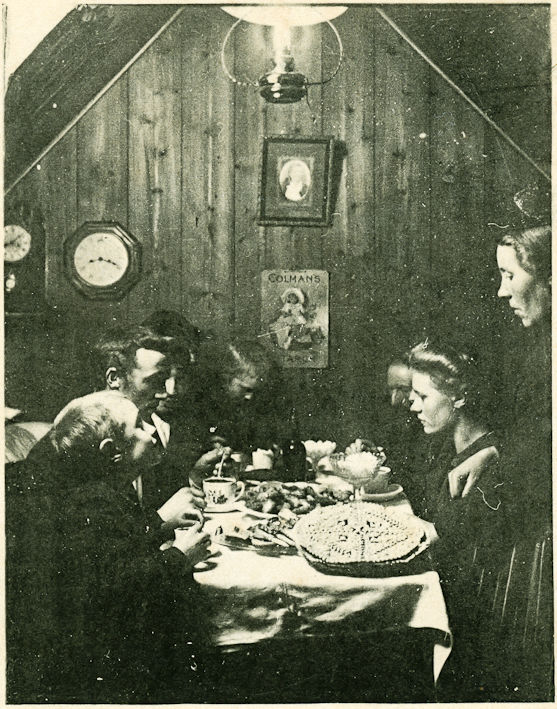Christmas in Iceland
In Iceland Christmas starts at six pm on Christmas Eve, December 24 and the festivities last until the Thirteenth Day (Twelfth Night), which falls on January 6. In the high north, Christmas is linked to an ancient history related to the winter solstice. It is not known with any certainty when „Christmas“ or Yule, was celebrated in heathendom but it is thought likely that the celebration took place on a full moon during the time of year when the day is shortest.
Not much is known either about how the feast was celebrated at that time except that Yule was „drunk“ with feasts of food and ale and Icelandic Chieftains were in the habit of inviting scores of people to Yule drinking feasts.
Later, Nordic Yule coincided with the Christian celebration of the birth of Christ the Redeemer due to the fact that around the time Christianity was introduced in Iceland the festivities had long ago achieved their place within the Church in Rome. It is worthy of a mention that in the Mediterranean the same thing had happened a little earlier, that is, heathen celebrations coinciding with Christian ones. In that way, centuries old mid-winter celebrations were turned into celebration of the Redeemer, where either his birth or baptism were the cause for celebration. In the 4th and 5th centuries it had become customary in most of the Christian world to commemorate the birth of Christ on December 25 and the baptism and the adoration of the Wise Men on January 6th, thus the idea of the thirteen days of Christmas.
Even though Christmas itself only lasts for thirteen days and starts at 6 o´clock sharp on Christmas Eve it may be claimed that to many people preparations for Christmas are as important as the festivities themselves. This is the way it has been for centuries and the weeks before Christmas have traditionally been taken over by Christmas preparations. In Iceland the weeks leading up to Christmas have been called either Christmas fast or Advent. Christmas fast because in Catholicism people fasted in the weeks leading up to Christmas and therefore were not supposed to eat any meat. The term advent, however, comes straight from Latin where the word adventus means to arrive but the Advent is thought of as a time for both spiritual and worldly preparations for Christmas. Advent, which starts on the fourth Sunday before Christmas is thus a time used to get preparations for Christmas done. As a matter of fact people nowadays often start their Christmas preparations long before Advent arrives but Advent is always the time when preparations are at their peak and get finished.
In the rural society of old much emphasis was placed on finishing the tasks that needed to be done around the home before Christmas and the most important tasks were the preparations and knitting of woolen garments. Knitted items were taken to the shopkeeper in exchange for store merchandise and if the merchandise was to be enjoyed at Christmas the woolens of course had to be ready in time. It was considered of high importance that every member of the household be properly dressed at Christmas and no one should be „devoured“ by the Yule Cat. Those who worked hard were given a new garment by their employers and therefore it was important to keep at the knitting.
Today, the Christmas preparations of the Icelanders are quite different from what they used to be, but one thing is certain, people are certainly not doing any less than they used to. Nowadays there are numerous things that need to be accomplished before the Church bells ring in Christmas. Christmas Cards must be written , Christmas presents have to be bought, the house has to be given a thorough Christmas cleaning, new Christmas clothes must be bought for every member of the family and thirteen days before Christmas children put their shoe in the window in the hope of the Yule lads (Icelandic version of Father Chistmas/Santa Claus) leaving them a little something. Then the Christmas food has to be thought of, as well as the Christmas baking and the Christmas decorations. When the Festivities finally arrive and the prepartions are finished wonderful days full of Christmas parties and Christmas entertainment take over.
- Next article
- Previous article
